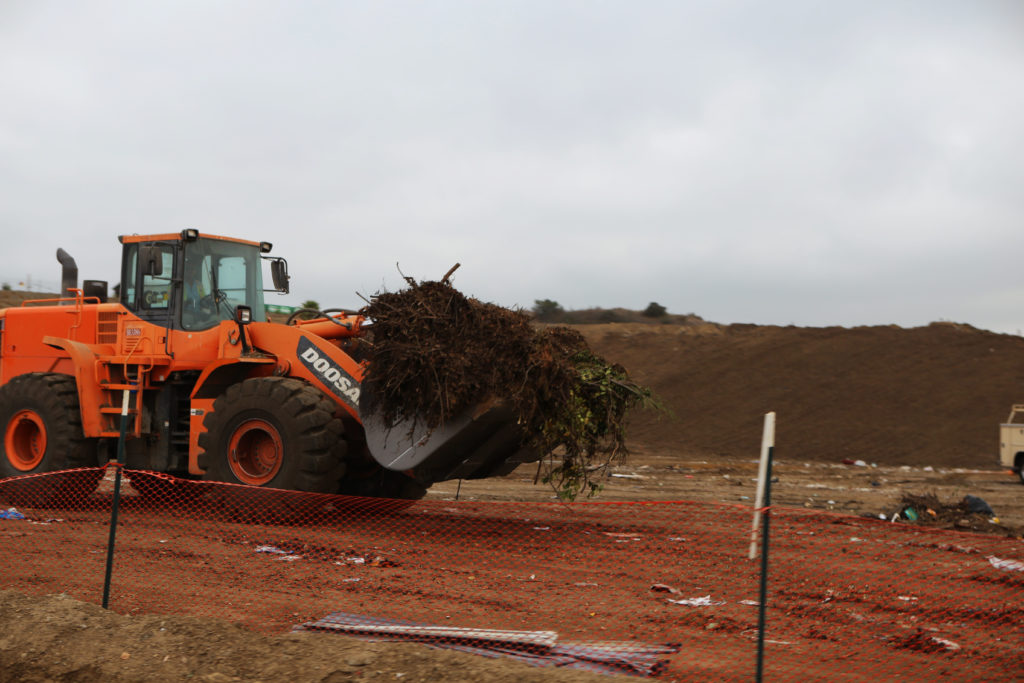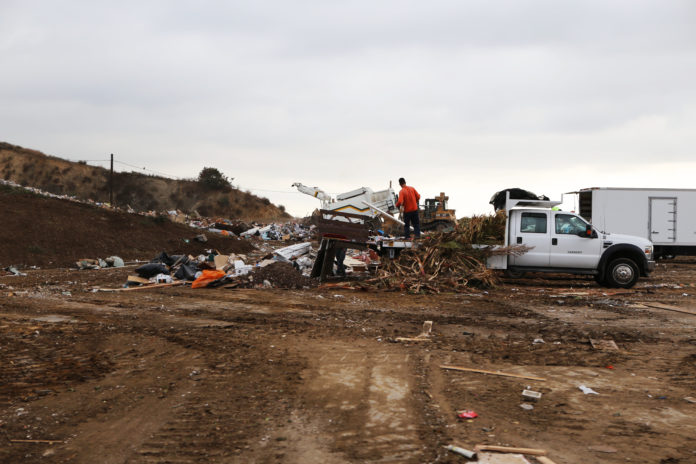Glendale city officials withdrew the proposed expansion project of the Scholl Canyon Landfill — located in Glendale and overlooking Eagle Rock residential areas — in May 2018, according to Eliza Papazian, a public information officer for the city of Glendale. Hans Johnson, president of East Area Progressive Democrats (EAPD), said this decision was not disclosed to the public until the week of Sept. 15, when local residents made a public records request. David Greene, who has lived in the area for 18 years and is the former chair of the Eagle Rock Neighborhood Council (ERNC) Land Use and Planning Committee and former president of the ERNC, said he is not sure the city’s withdrawal is final.
“The only evidence that the expansion has been ‘abandoned’ comes from a May 2018 email exchange that was divulged as the result of a public records request,” Greene said via email. “In my opinion, that’s not a sure thing.”
Papazian said city officials notified County Sanitation Districts in May 2018 that they were no longer pursuing plans for expansion because they intended to explore other options for the landfill. She also said the landfill has an estimated 10 years of operation left, which might vary based on annual deposit amounts.

The landfill opened in 1961. Marie Freeman, a resident who has lived in the area for about 20 years, said when residents found out about plans for the landfill’s expansion in 2014, they also found out that under its original contract, the landfill was supposed to close after 20 years of operation.
“It was to be turned into recreational use,” Freeman said. “Then we found out that there were several agreements after that, and that the current one allows them to keep it open pretty much as long as they want to.”
There have also been conversations about what to do with gas produced at the landfill, according to Freeman. Glendale Water and Power (GWP) has proposed a biogas facility that would convert the gas to electricity and is in the process of creating a draft Environmental Impact Report (EIR) on the project.
According to Greene, the city of Glendale and LA County have a joint powers agreement and are both involved in running the landfill. Greene said this means that although LA city streets are used to access the dump and the LA city neighborhood of Eagle Rock would be impacted by a leak or failure of the landfill, it is not considered an interested party.
“The fundamental issue … is that the City of LA, including the neighborhood of Eagle Rock, has no standing, and therefore no say, when it comes to what happens at Scholl Canyon — including the use of landfill gas, which is the current controversy,” Greene said via email. “Until that changes, I personally do not trust the City of Glendale to keep our best interests in mind.”
According to Freeman, the landfill has become more visible in recent years and truck traffic and air pollution are two main issues in the area around Scholl Canyon. She also said residents have become more willing to talk about the landfill since the city proposed expanding it.
“I think for a long time people were afraid to talk about [the landfill], because there’s a fear about its effect on property values,” Freeman said. “When the city brought up their proposal to expand it — make it even bigger — that, I think, galvanized the neighborhood.”
Johnson said the EAPD launched a variety of community organizing strategies to oppose the proposed expansion, such as petitioning, canvassing, hosting candidate forums and turning out voters for both Democratic Party elections and regular elections.
“All of this work was and continues to be indispensable to insisting on smarter waste policies and cleaner energy policies by Glendale,” Johnson said. “And holding Glendale accountable to its own zero waste ordinance — passed unanimously in December of 2011 — which holds the city accountable to 75 percent diversion and recycling of waste by 2020 and 90 percent diversion of recycling of waste by 2030.”
Johnson said he thinks the organizing efforts of local residents put pressure on the city of Glendale to abandon the expansion. He thinks it is lamentable that city officials did not publicly announce that they had abandoned plans to expand the landfill.
“Why in the world — on a decision as momentous as backing down from its effort to expand the trash pile by 180 feet, and the lasting damage that threatened to our environment and to the health of the residents — did [city officials] not do that openly?” Johnson said. “That is shameful, but the outcome is really laudable, and is a victory for citizen activism, community organizing and informed advocacy at its best.”
Freeman said she thinks the lack of public announcement hurt the relationship between the city and its residents.
“I think, because they didn’t announce it publicly and it was a big change, that created some fire under the neighborhoods,” Freeman said. “There was a bit of indignation involved with it, and it also broke trust down.”
Freeman said that moving forward, she thinks residents will continue to encourage the city of Glendale to be more transparent and involve the community in their decision processes.
According to Freeman, the city is supposed to close the landfill once it reaches a certain height, which is estimated to happen in 2028. She said she thinks the city needs to set a limit on the landfill’s operation, especially since the state of California has been pushing to close landfills and it can take years to plan for a landfill’s closure. Freeman also said she hopes that by setting a predictable limit on the operation of the landfill, the city will be able to discuss forward-thinking waste management ideas.
“What are they going to do about garbage? Very seriously — that’s a whole new paradigm,” Freeman said. “Now we’re talking about an important question.”
Johnson said he hopes Occidental students understand that politics are important not only on the national level but in their local communities too.
“For students, and for [Occidental] stakeholders in particular, it’s important to know that politics and democracy are very much at stake very much in our own community,” Johnson said. “We have very serious risks to our own health and safety close to home.”
This article was updated Oct. 7, 2019 at 4:00 p.m. to correct David Greene’s titles. He is the former chair of the ERNC Land Use and Planning Committee and former president of the ERNC. Michael Sweeney is the current chair of the ERNC Land Use and Planning Committee.
![]()




































